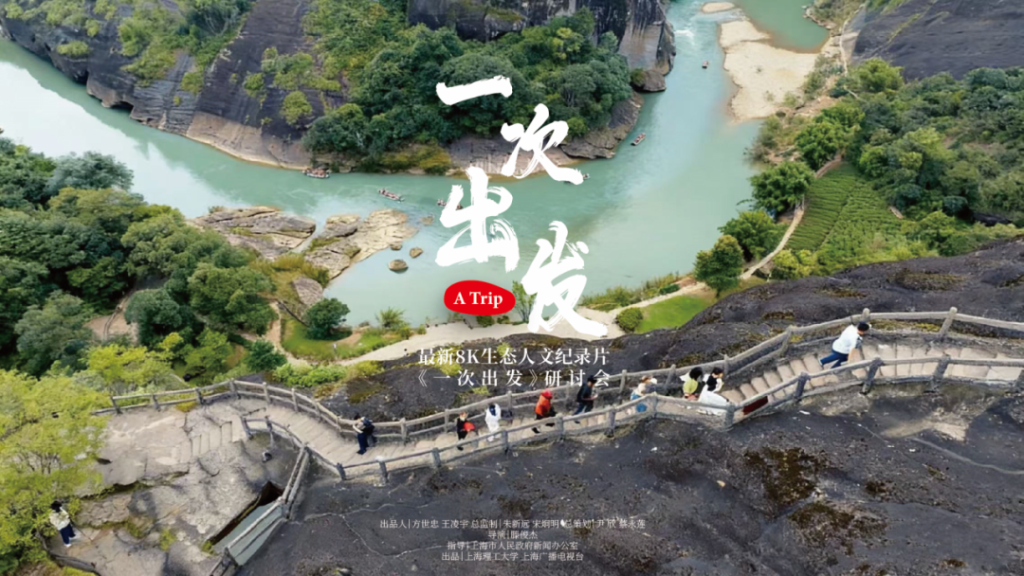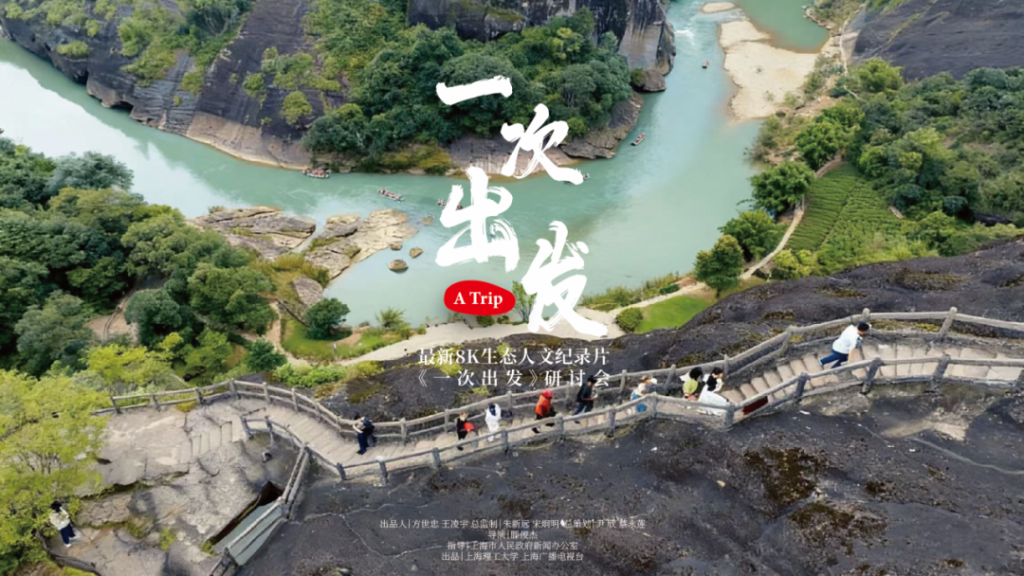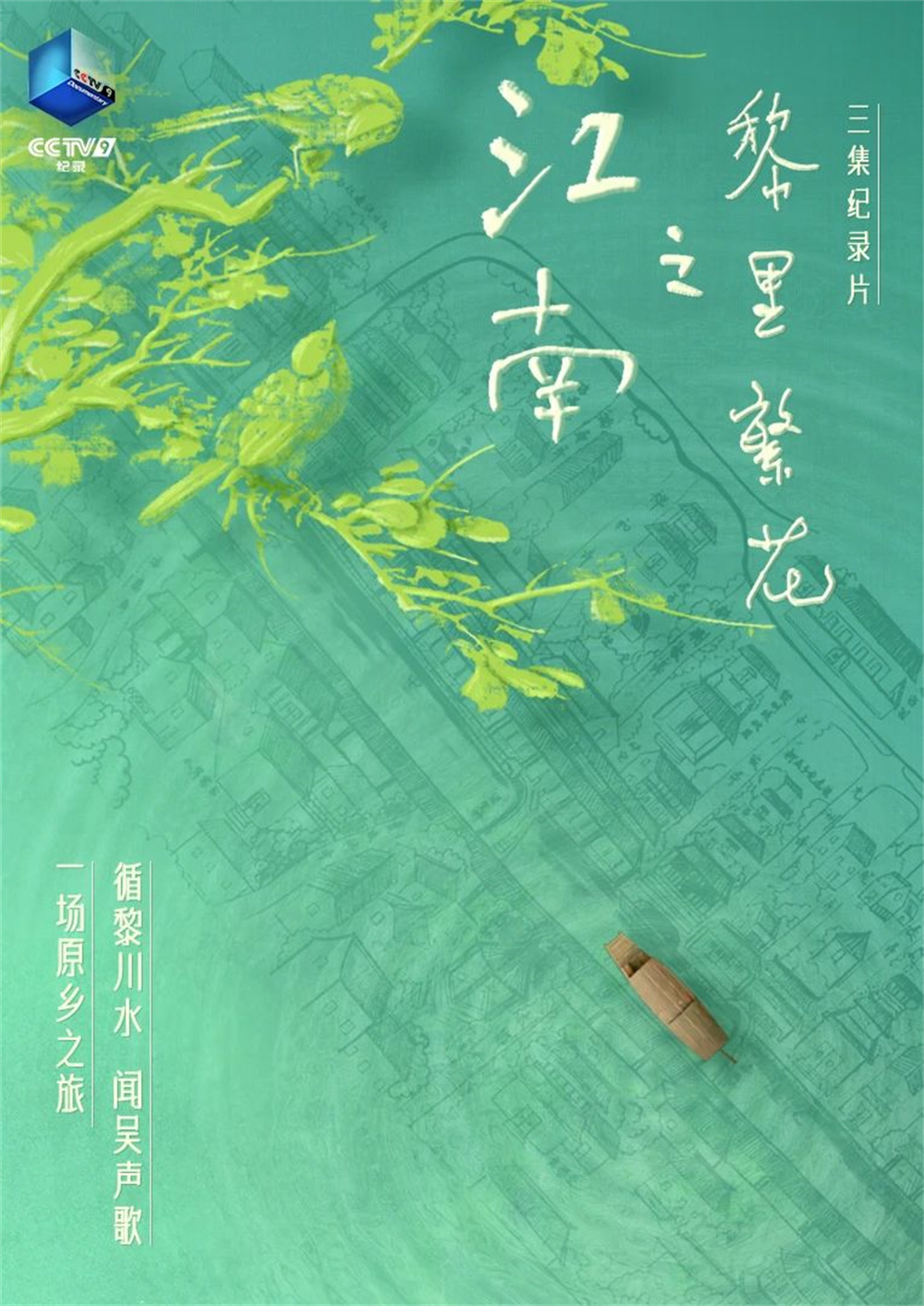
“With green bricks and painted tiles, a white horse treads on new mud, mountain flowers and banana leaves are tinged with the dusk, and rain drips from the eaves…” Many people's impressions of the Jiangnan water towns are shaped by poetry. What kind of soil nurtured the writer Jin Yucheng, who won the Mao Dun Literature Prize for his work *Blossoms*? How has Fei Xiaotong's concept of "village economy" evolved over time?
The documentary *Jiangnan: The Blossoms of Lili* will take viewers to the historic cultural town of Lili in Wujiang District, Suzhou, Jiangsu Province, to tell stories of renowned historical figures, the inheritance of intangible cultural heritage, and the narrative of integrated development in the Yangtze River Delta. The film will begin airing daily at 19:22 on CCTV's Documentary Channel starting September 11.

Poster for *Jiangnan: The Blossoms of Lili*
Jin Yucheng once mentioned that the Shanghai stories that made him famous originated from his hometown of Lili, with everything stemming from that place. In the documentary, Jin returns to the old Jin family house beside the city river, where he spent five years collaborating with designers to create his study, Blooming Study.
What changed the trajectory of his life, leading him to become a writer? Which characters in *Blossoms* are based on real people?
In the film, Jin Yucheng recalls, “My childhood was under the care of my grandmother in Lili. Both my parents went to the countryside, and my grandmother took care of us. Although she was not educated, she was particularly good at storytelling. There’s a character called Grandma Shaoxing in *Blossoms*, who is actually based on my grandmother... Our whole family feels a connection to this place that seems distant yet intimate; my grandfather passed away here, and my father was born here—it's a legacy of emotion…”
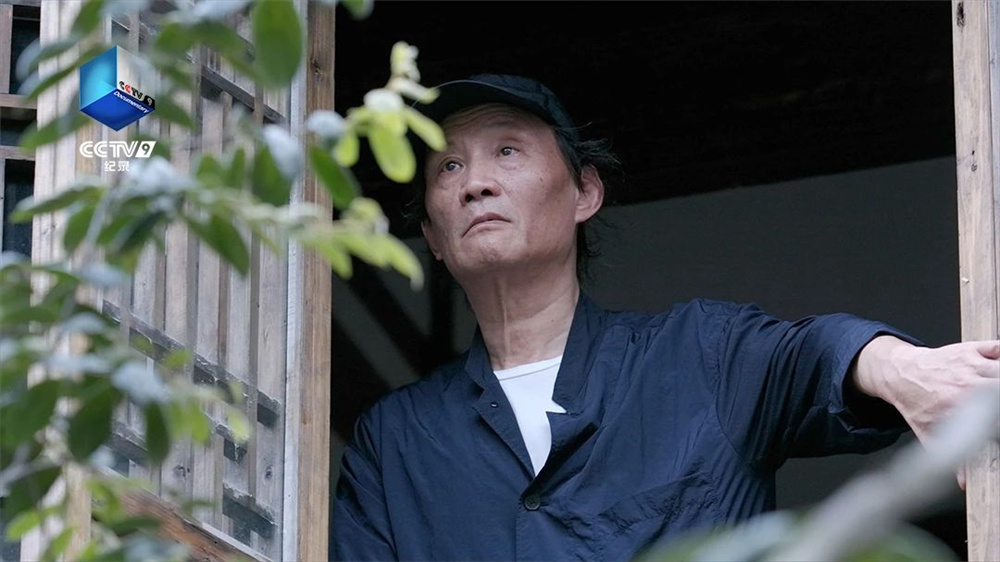
Still from *Jiangnan: The Blossoms of Lili*
A table that was moved to Shanghai 70 years ago has now returned to its original spot. Jin Yucheng wrote both *Blossoms* and *Looking Back* on it.
The third phase of the Blooming Study formally expresses the theme of return. Through the exploration of notes, letters, and books, Jin Yucheng documents the scenes of returning to the old Jin family house with his father when he was 90, in his non-fiction work *Looking Back*. The Lichuan City River appears to become a river of memories, carrying the nostalgia of two generations of Jin Yucheng and his father.
After *Blossoms*, Jin Yucheng became increasingly immersed in painting, tirelessly navigating the intersection of literature and art. Naturally, the Blooming Study has also become his studio and exhibition space.
Before the start of summer in 2024, the Blooming Study will officially open to the public, turning into a cultural event.
As we stroll through this ancient Jiangnan town, we can still hear the long and enduring songs that echo from the depths of time, the voices of a way of life crystallized into a spiritual expression.
The national intangible cultural heritage, Lvxu Mountain Songs, is rooted in life and sings of life.
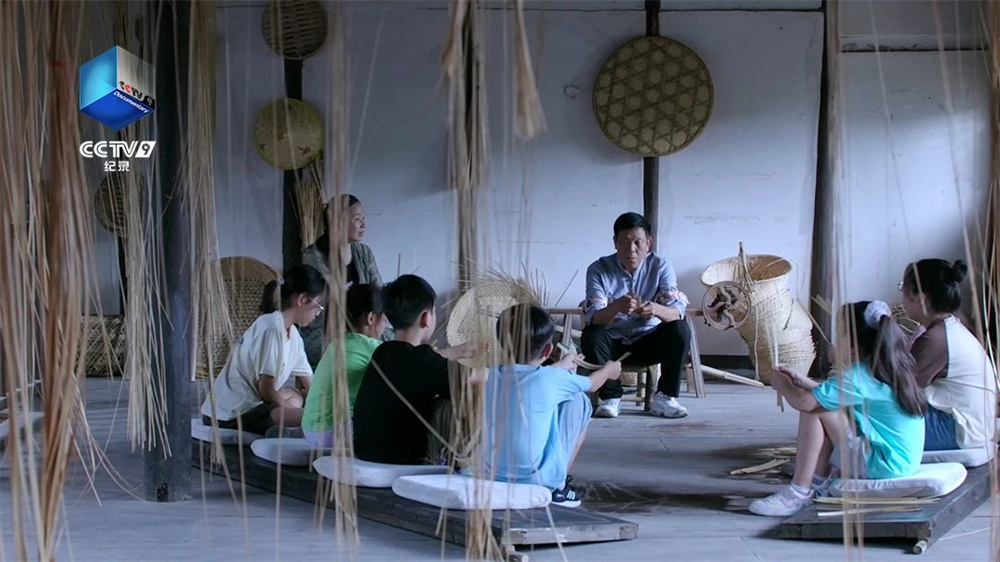
Still from *Jiangnan: The Blossoms of Lili*
For over twenty years, the charm of Lvxu Mountain Songs has attracted thousands of local folk singers. As they come to Lili Ancient Town to experience intangible cultural heritage techniques, they seek to discover and listen to more sounds of life, ultimately collaborating to create a mountain song that belongs to them.
In 1939, Fei Xiaotong published *Village Economy* in English. Today, Wujiang has undergone tremendous changes. Young artists in residence, filmmakers, museum curators, and high-tech enterprise managers... through the eyes and voices of a new generation, they present a contemporary interpretation of "village economy."
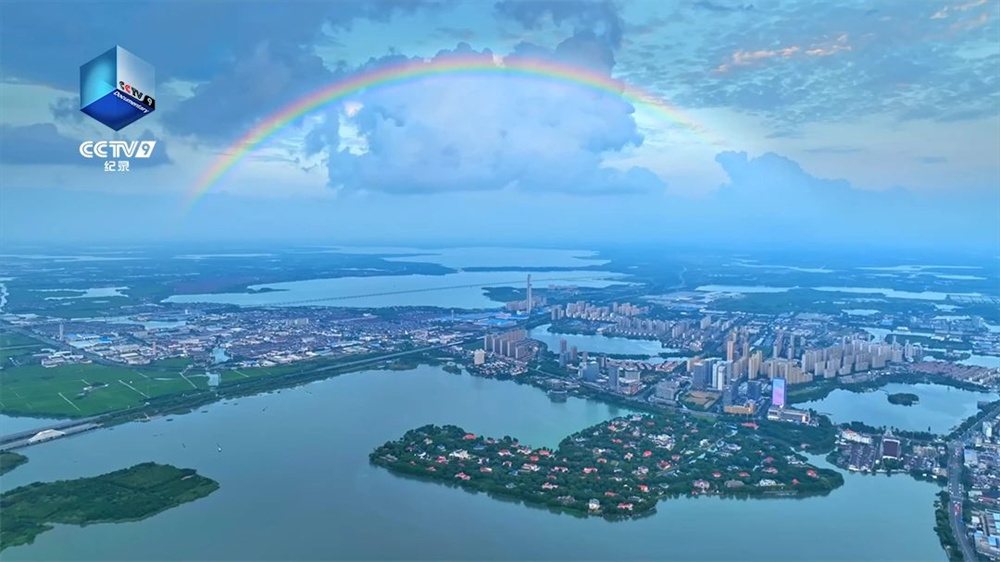
Still from *Jiangnan: The Blossoms of Lili*
Episode Guide:
Episode One - Lichuan Water
Using the perspective of sailing on the city river, this episode unfolds the ancient town's landscape like a painting, with each character's story serving as a vignette of historical culture, showcasing the rich historical and cultural accumulation of Lili Ancient Town and evoking deep emotions. For instance, Mao Dun Literature Prize winner Jin Yucheng returns to the old Jin family house by the city river, capturing nostalgia and memory in the Blooming Study. Walking along the city river, familiar figures emerge, including the scholar Liu Yazi and old Shanghai film star Yin Mingzhu...
Episode Two - Wu Voice and Song
Sound is a concrete expression of each specific space, and it is also an effective means to enhance the audience's experience. This episode follows the students and teachers of the Lvxu Primary School Mountain Song class as they create a mountain song reflecting the Jiangnan water towns, through the search and experience of the story's protagonists, showcasing the rich and colorful scenes and cultural landscape of Jiangnan, and highlighting the unique local culture and ecological construction of the “Wu roots and Yue corners.”
Episode Three - The Original Homeland Plan
In 1939, Fei Xiaotong published *Village Economy* in English, and today, Wujiang—economically among many other aspects—has experienced monumental changes. With the perspectives of resident artists, filmmakers, museum curators, and managers of high-tech enterprises, this episode presents a new interpretation of "village economy" for the new era. Through the eyes of the youth, it reflects how today's Wujiang is welcoming and embracing the world with a more open attitude.
